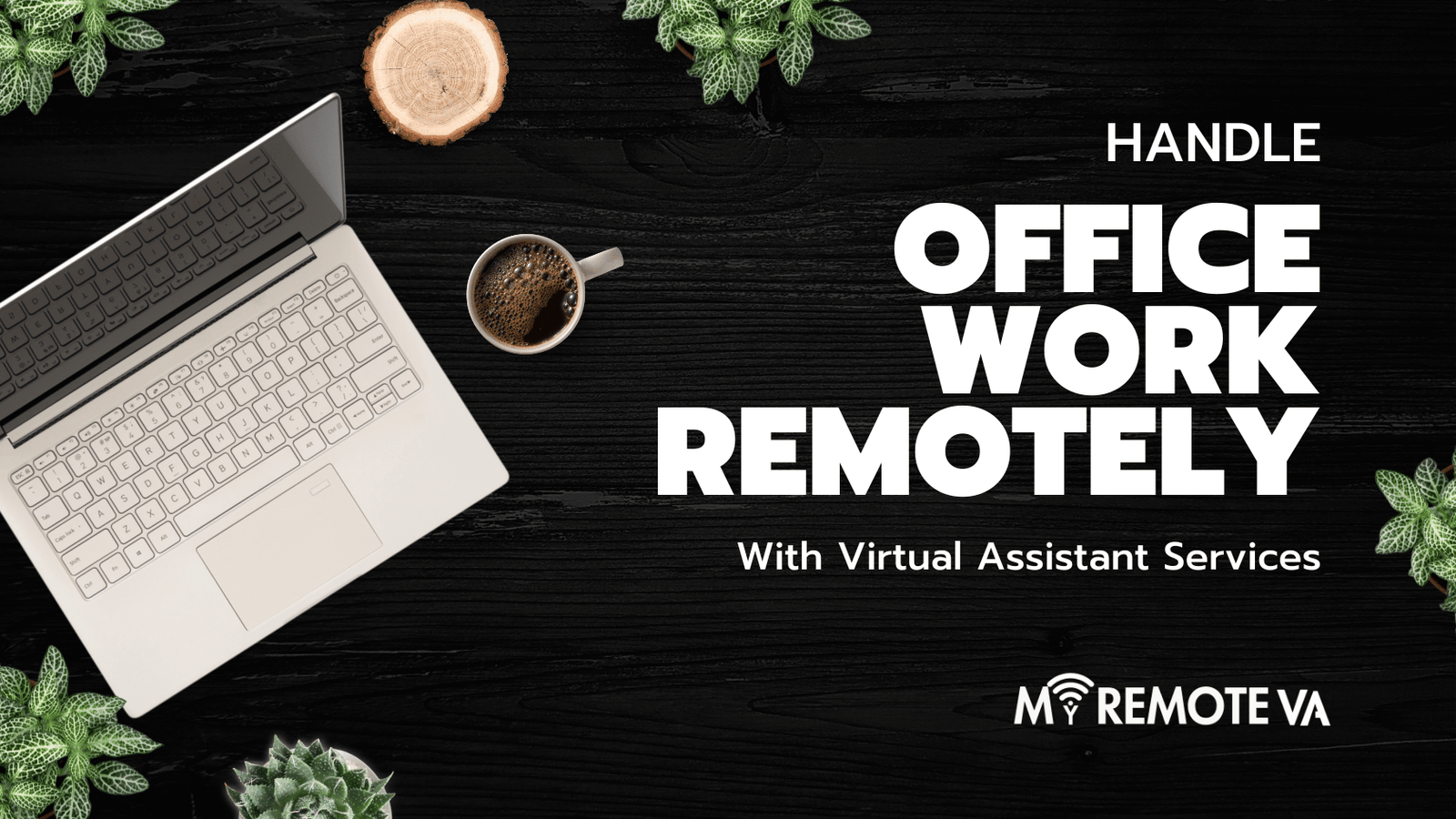Realtor Virtual Assistant Services: Streamline Your Business & Boost Productivity
As a realtor, your time is valuable. Juggling showings, client meetings, marketing, and administrative tasks can leave you feeling overwhelmed and hinder your ability to focus on closing deals. Realtor virtual assistant services offer a powerful solution to reclaim your time and boost your productivity.
- Realtor Virtual Assistant Services: Streamline Your Business & Boost Productivity
- What are Realtor Virtual Assistant Services?
- Benefits of Hiring a Realtor Virtual Assistant
- Services Offered by Realtor Virtual Assistants
- Recent Market Signals & Trends (USA, UK, New Zealand, Singapore, Australia, UAE - Last Month)
- How to Choose the Right Realtor Virtual Assistant
- Pricing Models for Realtor Virtual Assistant Services
- FAQ: Realtor Virtual Assistant Services
- What Qualifications Should a Realtor Virtual Assistant Have?
- How do I ensure data security and confidentiality?
- How Can I Track the VA's Performance?
- What happens if I'm not satisfied with the VA's services?
- What tools and technology do I need to work with a VA effectively?
- Are there any legal considerations when hiring a VA internationally?
What Can a Realtor Virtual Assistant Do?
A skilled virtual assistant can handle a wide range of tasks, allowing you to concentrate on core real estate activities. Here are some examples:
- Administrative Tasks: Managing your calendar, scheduling appointments, handling email correspondence, data entry, and preparing documents.
- Marketing Support: Creating and managing social media content, designing marketing materials (flyers, brochures), managing email marketing campaigns, and updating your website.
- Client Communication: Responding to inquiries from potential clients, following up with leads, providing customer support, and managing client databases.
- Transaction Coordination: Assisting with paperwork, coordinating inspections, and ensuring a smooth closing process.
- Research & Data Analysis: Conducting market research, analyzing property data, and preparing reports.
Benefits of Hiring a Realtor Virtual Assistant
Partnering with a virtual assistant offers several key advantages:
- Increased Productivity: Delegate time-consuming tasks and free up your time to focus on revenue-generating activities.
- Reduced Costs: Avoid the expenses associated with hiring a full-time employee, such as salary, benefits, and office space.
- Improved Efficiency: Virtual assistants are often highly skilled and experienced in specific areas, allowing them to complete tasks quickly and efficiently.
- Greater Flexibility: Access support when you need it, without being tied to a fixed schedule. You can choose hourly or dedicated plans to fit your needs.
- Focus on Core Business: By outsourcing non-core tasks, you can concentrate on what you do best: selling real estate.
Flexible Virtual Assistant Plans
Virtual assistant services are often structured with flexible plans to suit different needs and budgets. This might include hourly plans, allowing you to purchase a set number of hours per month (e.g., 5, 10, 20, or 30 hours). Dedicated plans offering a set number of hours each week (e.g., 80 hours or 160 hours) are also available for heavier workloads. Some services also offer a free trial period to test out the service before committing.
What are Realtor Virtual Assistant Services?
Realtor virtual assistant services provide remote support to real estate professionals, helping them manage their workload and focus on core business activities like client acquisition and closing deals. These services encompass a wide range of tasks that can be delegated to a skilled virtual assistant, freeing up the realtor’s time and improving overall efficiency.
Tasks Commonly Handled by Realtor Virtual Assistants:
Realtor virtual assistants can handle a variety of tasks, including:
- Administrative Support: Managing calendars, scheduling appointments, handling emails, and maintaining client databases.
- Marketing & Social Media: Creating and scheduling social media posts, managing online listings, and developing marketing materials.
- Customer Support: Responding to inquiries from potential clients, providing property information, and scheduling showings.
- Transaction Coordination: Assisting with paperwork, coordinating inspections, and ensuring smooth transaction processes.
- Data Entry and Management: Inputting property information into databases, updating listings, and generating reports.
- Lead Generation Support: Researching potential leads, setting up email campaigns, and qualifying leads.
By delegating these tasks, realtors can leverage their time more effectively, resulting in increased productivity and improved client satisfaction. Many virtual assistant services offer flexible hourly and team-based plans to cater to various needs and budgets. This allows realtors to access expert support on a schedule that aligns with their specific requirements.
Benefits of Hiring a Realtor Virtual Assistant
In today’s fast-paced real estate market, staying ahead requires efficiency and a strategic allocation of resources. Realtor virtual assistant services offer a multitude of benefits that can significantly impact your productivity, allowing you to focus on core activities like client acquisition and closing deals.
Increased Efficiency and Productivity
A realtor virtual assistant can handle a wide range of administrative, marketing, and client support tasks, freeing up your valuable time. Imagine no longer spending hours on scheduling appointments, managing social media, or preparing marketing materials. By delegating these responsibilities, you can dedicate more time to revenue-generating activities.
Cost-Effectiveness
Hiring a virtual assistant is generally more cost-effective than hiring a full-time employee. You avoid expenses like salaries, benefits, and office space. You typically pay only for the hours worked, making it a flexible and budget-friendly solution.
Improved Lead Generation and Management
Realtor virtual assistants can play a crucial role in lead generation and management. They can qualify leads, nurture them through email campaigns and social media engagement, and schedule appointments for you. A well-managed lead pipeline translates to increased opportunities and higher conversion rates.
Enhanced Marketing Efforts
Marketing is essential for success in real estate. A virtual assistant can assist with creating and distributing marketing materials, managing social media accounts, and running online advertising campaigns. This ensures consistent branding and increased visibility in the market.
Better Customer Service
Providing excellent customer service is paramount in building lasting relationships. A virtual assistant can handle client inquiries, schedule showings, and provide updates on property listings, ensuring that your clients receive prompt and attentive service. This can lead to increased client satisfaction and referrals.
Access to Specialized Skills
Virtual assistants often possess specialized skills in areas such as graphic design, social media marketing, or website management. By hiring a VA with the skills you need, you can access expertise without having to hire multiple full-time employees.
Reduced Stress and Improved Work-Life Balance
Delegating tasks to a virtual assistant can significantly reduce your workload and stress levels. This allows you to maintain a better work-life balance, preventing burnout and improving your overall well-being.
Services Offered by Realtor Virtual Assistants
Realtor virtual assistant services provide comprehensive support to real estate professionals, freeing them to focus on core activities like client acquisition and closing deals. These services are designed to handle time-consuming and administrative tasks that often bog down busy realtors.
Administrative Support
Realtor VAs excel at handling administrative duties, including:
- Managing calendars and scheduling appointments
- Responding to emails and phone calls
- Data entry and database management
- Preparing documents and presentations
Marketing Assistance
Marketing is crucial in real estate, and a VA can significantly contribute by:
- Creating and scheduling social media posts
- Managing email marketing campaigns
- Designing marketing materials (flyers, brochures)
- Updating website content
- Assisting with online advertising campaigns
Transaction Coordination
VAs can streamline the transaction process by:
- Preparing transaction-related documents
- Coordinating with clients, lenders, and escrow companies
- Tracking deadlines and ensuring compliance
Customer Support
Providing excellent customer service is paramount. VAs can:
- Respond to inquiries from potential clients
- Provide updates to existing clients
- Manage client databases and follow-up systems
Technical Tasks
Realtors often rely on various technologies. A VA can assist with:
- Managing CRM systems
- Troubleshooting technical issues
- Creating and managing virtual tours
By delegating these tasks to a realtor virtual assistant, real estate agents can optimize their time, improve efficiency, and ultimately, increase their sales and client satisfaction. Many virtual assistant companies offer flexible plans, from hourly options to dedicated team support, tailored to the specific needs and budget of the realtor.
Recent Market Signals & Trends (USA, UK, New Zealand, Singapore, Australia, UAE – Last Month)
Understanding the latest market trends is crucial for realtors. These trends directly impact the workload and demands placed on realtors, influencing the need for efficient support systems like realtor virtual assistant services.
United States
The US housing market has shown signs of stabilization, with inventory levels slightly increasing in some regions. This potentially translates to more administrative tasks for realtors, such as managing listings and scheduling showings. Realtor virtual assistants can handle these routine tasks, freeing up realtors to focus on client interaction and negotiation.
United Kingdom
The UK property market remains sensitive to economic uncertainties. Realtors may experience fluctuating client inquiries and require agile support to manage client communication and lead generation. A virtual assistant can help manage these fluctuations by scaling support up or down as needed.
New Zealand
New Zealand’s housing market is experiencing adjustments after a period of rapid growth. Realtors are adapting to changing buyer sentiment and may need support in adjusting marketing strategies. Virtual assistants can assist with market research, competitor analysis, and social media management to optimize marketing efforts.
Singapore
Singapore’s property market remains competitive. Realtors require consistent client communication and efficient handling of administrative tasks to maintain a competitive edge. Virtual assistants can provide timely responses to inquiries and manage paperwork, ensuring a seamless client experience.
Australia
The Australian housing market is showing regional variations. Realtors need to stay updated on local market conditions and tailor their services accordingly. Virtual assistants can help gather and analyze market data, providing realtors with valuable insights to inform their strategies.
United Arab Emirates (UAE)
The UAE property market continues to attract international investors. Realtors are managing a diverse clientele and require support in handling multilingual communication and coordinating international transactions. Virtual assistants can assist with translation services and managing paperwork for international clients.
In summary, the dynamic nature of real estate markets globally reinforces the value of realtor virtual assistant services. By delegating administrative, marketing, and client-related tasks, realtors can improve efficiency, focus on core competencies, and navigate market fluctuations more effectively.
How to Choose the Right Realtor Virtual Assistant
Finding the right realtor virtual assistant (VA) can significantly boost your productivity and free you up to focus on core business activities like client meetings and closing deals. However, with so many options available, it’s essential to make an informed decision.
Key Considerations Before Hiring
Before you start your search, consider these crucial factors:
- Define Your Needs: What specific tasks do you need help with? Are you looking for assistance with administrative duties, marketing, lead generation, or customer support? Clearly defining your needs will help you narrow down your search.
- Budget: Virtual assistant services come with varying pricing models. Determine your budget beforehand to avoid overspending. Consider if you require flexible hourly plans, team-based dedicated plans, or a combination of both.
- Experience & Skills: Ensure the VA possesses the necessary experience and skills for the tasks you need to delegate. Look for VAs with a proven track record in the real estate industry.
- Communication Skills: Effective communication is vital for a successful VA-realtor relationship. Choose a VA who is responsive, clear, and proactive in their communication.
- Availability & Time Zone: Consider the VA’s availability and time zone compatibility with your schedule. Overlapping working hours can improve communication and collaboration.
Evaluating Potential VAs
Once you have a clear understanding of your needs, you can start evaluating potential VAs based on the following criteria:
- Portfolio & Testimonials: Review the VA’s portfolio to assess their previous work and experience. Look for testimonials from other realtors to gauge their satisfaction.
- Interview Process: Conduct thorough interviews to assess the VA’s skills, communication style, and personality. Ask specific questions about their experience in the real estate industry.
- Trial Period: Consider starting with a trial period to evaluate the VA’s performance before committing to a long-term contract. This allows you to assess their skills and fit within your workflow.
- Security & Confidentiality: Ensure the VA has measures in place to protect your sensitive data and maintain confidentiality.
Pricing Models and Plans
Different virtual assistant service providers offer varying pricing models. Some provide flexible hourly plans, while others offer dedicated plans for a set number of hours per week or month.
For instance, some services offer curated Hourly Monthly Plans allowing you to purchase a block of hours (e.g., 5, 10, 20, or 30 hours) to use as needed. This offers flexibility and is ideal for tasks that fluctuate in volume. Other services provide Dedicated Plans, where you have a dedicated VA working a fixed number of hours per week (e.g., 80 or 160 hours). This is suitable for tasks that require consistent attention and dedicated focus.
Consider starting with a smaller plan and scaling up as needed. Some providers even offer a small free plan, which can be used for 1 free hour every month with task support and rollover benefits.
Pricing Models for Realtor Virtual Assistant Services
Understanding the different pricing models for realtor virtual assistant services is crucial for budgeting and ensuring you get the best value. These services often offer a range of plans to suit various needs and budgets.
Hourly Plans
Hourly plans are a popular choice, especially for realtors who need flexible support for tasks like data entry, social media management, or appointment scheduling. You pay for the actual hours your virtual assistant works, offering control over expenses. These plans can be a good fit if you have fluctuating workloads or need assistance with specific projects. Flexible hourly support provides admin, tech, customer support, marketing, creative and even executive assistance.
Monthly Subscription Plans
Monthly subscription plans provide a set number of hours per month at a fixed rate. This can offer cost savings compared to hourly plans if you have consistent support needs. These plans often come in tiers, allowing you to choose the number of hours that best aligns with your requirements. For example, plans may offer 5, 10, 20, or even 30 hours per month.
Dedicated Plans
Dedicated plans involve hiring a virtual assistant for a set number of hours per week, typically 40 (80 hours bi-weekly) or 80 (160 hours bi-weekly). This model is suitable for realtors who require a full-time or near full-time assistant to handle a wide range of responsibilities. Dedicated plans provide consistency and allow the virtual assistant to become deeply integrated into your business operations.
Team-Based Plans
For larger real estate teams or brokerages, team-based plans provide access to a team of virtual assistants with diverse skillsets. This model allows for a wide range of tasks to be handled efficiently and effectively. These plans often include a dedicated supervisor to manage the team, processes, and reporting.
Factors Affecting Pricing
Several factors influence the pricing of realtor virtual assistant services, including:
- Experience and Skill Level: More experienced VAs with specialized skills may command higher rates.
- Location: The location of the VA provider can impact pricing due to differences in labor costs.
- Services Included: Comprehensive service packages typically cost more than basic task-oriented plans.
- Plan Type: Dedicated and team-based plans are often priced higher than hourly plans.
FAQ: Realtor Virtual Assistant Services
Navigating the real estate market requires significant time and dedication. Realtor virtual assistant services offer a streamlined solution to handle administrative tasks, marketing, and client communication, freeing up realtors to focus on core activities like showing properties and closing deals.
What tasks can a realtor virtual assistant handle?
A realtor virtual assistant can assist with a wide range of tasks, including:
- Administrative Support: Managing calendars, scheduling appointments, handling email correspondence, data entry, and creating reports.
- Marketing Assistance: Creating and managing social media content, designing marketing materials (flyers, brochures), managing email marketing campaigns, and updating website listings.
- Client Communication: Responding to client inquiries, providing property information, scheduling showings, and following up with leads.
- Transaction Coordination: Assisting with paperwork, coordinating inspections, and communicating with all parties involved in a transaction.
- Research & Data Management: Conducting market research, gathering property data, and updating CRM systems.
What are the benefits of using a realtor virtual assistant?
Employing a realtor virtual assistant offers several key advantages:
- Increased Efficiency: Delegate time-consuming tasks to focus on revenue-generating activities.
- Reduced Overhead Costs: Avoid the expenses associated with hiring a full-time employee (salary, benefits, office space).
- Improved Work-Life Balance: Free up time for personal commitments and prevent burnout.
- Access to Specialized Skills: Leverage expertise in areas like marketing, social media management, and transaction coordination.
- Scalability: Easily adjust support levels based on fluctuating business needs.
How do realtor virtual assistant service plans work?
Realtor virtual assistant services typically offer flexible plans to cater to varying needs. These plans can be structured in a few common ways:
- Hourly Plans: These plans provide a set number of hours per month (e.g., 5, 10, 20, 30 hours) that can be used for various tasks.
- Dedicated Plans: These plans provide a dedicated virtual assistant for a fixed number of hours per week (e.g., 80 hours/month, 160 hours/month), offering a more consistent and integrated level of support.
- Team-Based Plans: For larger teams or more complex needs, multi-VA setups provide access to a team of virtual assistants with specialized skills.
Some services even offer a trial or free plan to experience the benefits before committing to a paid option.
How do I choose the right realtor virtual assistant service?
Consider the following factors when selecting a service:
- Your Specific Needs: Identify the tasks you need assistance with and the level of support required.
- Budget: Determine how much you are willing to spend on virtual assistant services.
- Experience and Expertise: Look for a service with experience in the real estate industry and a track record of success.
- Communication and Availability: Ensure the service offers clear communication channels and is responsive to your needs.
- Management and Support: Understand how the service manages its virtual assistants and provides ongoing support.
By carefully evaluating your needs and researching available options, you can find a realtor virtual assistant service that helps you optimize your business and achieve your goals.
What Qualifications Should a Realtor Virtual Assistant Have?
Hiring a realtor virtual assistant can significantly streamline your real estate business. But to ensure success, you need a VA with the right qualifications. Look for a combination of real estate knowledge and administrative expertise.
Essential Skills and Experience
Ideally, a realtor virtual assistant should possess the following:
- Real Estate Industry Knowledge: A basic understanding of real estate terminology, processes (like listing agreements and closing procedures), and relevant regulations is crucial.
- Administrative Expertise: Strong organizational, time management, and communication skills are a must. Tasks may include scheduling appointments, managing emails, and preparing documents.
- Marketing Proficiency: Many VAs assist with marketing tasks such as creating social media content, managing email campaigns, and updating online listings. Experience with real estate marketing tools is a plus.
- Customer Service Skills: Interacting with clients, answering inquiries, and providing support are often part of a realtor VA’s responsibilities. Excellent customer service skills are essential for a positive client experience.
- Technical Skills: Familiarity with real estate software, CRM systems, and online marketing platforms is important.
Beyond the Basics
While the above skills are essential, consider additional qualifications that could benefit your specific needs:
- Lead Generation Experience: Some VAs specialize in lead generation activities, such as researching potential clients and managing online advertising campaigns.
- Transaction Coordination: Certain VAs can assist with transaction coordination tasks, such as gathering documents, tracking deadlines, and communicating with involved parties.
- Geographic Familiarity: If you need assistance with local marketing or property research, a VA familiar with your target market can be a valuable asset.
When evaluating potential candidates, assess their experience, skills, and references to ensure they possess the necessary qualifications to support your real estate business effectively. Remember that some virtual assistant services offer different plans that includes hourly monthly plans or build a team for example.
How do I ensure data security and confidentiality?
Entrusting a virtual assistant (VA) with sensitive real estate data requires careful consideration of security protocols. When exploring realtor virtual assistant services, prioritize providers with robust security measures in place.
Key Security Considerations:
- Confidentiality Agreements (NDAs): Ensure your VA service has their assistants sign legally binding Non-Disclosure Agreements. This is a fundamental safeguard to protect your client information and proprietary business data.
- Data Encryption: Understand how the VA service protects your data in transit and at rest. Strong encryption protocols are essential for preventing unauthorized access.
- Secure Communication Channels: Establish and enforce the use of secure communication platforms (e.g., encrypted email, secure messaging apps) for all business-related correspondence.
- Access Controls and Permissions: Implement strict access controls, granting VAs access only to the data and systems they need to perform their specific tasks. Regularly review and adjust permissions as needed.
- Data Backup and Recovery: Inquire about the VA service’s data backup and disaster recovery plans. This ensures business continuity in the event of data loss or system failures.
- Password Management: Enforce strong password policies and utilize a password manager to safeguard credentials. Two-factor authentication adds an extra layer of security.
- Regular Security Audits: Consider asking if the VA service undergoes regular security audits to identify and address potential vulnerabilities.
- Compliance with Regulations: Confirm that the VA service complies with relevant data privacy regulations, such as GDPR or CCPA, depending on your location and the nature of your data.
By thoroughly evaluating these aspects, you can confidently select a realtor virtual assistant service that prioritizes data security and protects your confidential information.
How Can I Track the VA’s Performance?
Tracking the performance of your realtor virtual assistant is crucial to ensuring a successful partnership and maximizing your return on investment. Effective tracking allows you to identify areas where the VA excels, pinpoint areas needing improvement, and ultimately optimize your processes for better results.
Methods for Monitoring Performance
Here are several methods you can employ to effectively track your realtor virtual assistant’s performance:
- Time Tracking Software: Utilizing time tracking software provides detailed insights into the hours worked and tasks completed. This helps you monitor efficiency and ensures accurate billing.
- Task Management Tools: Project management tools, such as Trello, Asana, or Monday.com, allow you to assign tasks, set deadlines, and track progress. You can easily see which tasks are completed, which are pending, and any potential bottlenecks.
- Regular Check-ins: Schedule regular check-in meetings (weekly or bi-weekly) to discuss progress, address any challenges, and provide feedback. These meetings offer valuable opportunities for communication and collaboration.
- Key Performance Indicators (KPIs): Define specific, measurable, achievable, relevant, and time-bound (SMART) KPIs relevant to your needs. For example, KPIs for a realtor VA could include the number of leads generated per month, the number of appointments scheduled, or the number of social media posts created and their engagement rates.
- Reporting and Analytics: Request regular reports from your VA detailing their accomplishments, tasks completed, and any relevant metrics. Analyze these reports to identify trends and areas for improvement.
- Communication Logs: Keep a record of all communications, including emails, messages, and meeting notes. This creates a comprehensive history and helps track progress over time.
Leveraging Dedicated Support for Tracking and Management
If you’re using a virtual assistant service that offers dedicated supervisor support, you’ll benefit from built-in tracking and reporting. A dedicated supervisor manages your VA, processes, and reporting, saving you time and effort. This supervisor will typically provide regular performance reports and address any concerns you may have regarding your VA’s performance.
What happens if I’m not satisfied with the VA’s services?
We understand that finding the right fit with a virtual assistant is crucial for a successful partnership. Your satisfaction is our priority, and we have measures in place to address any concerns you may have regarding your VA’s performance.
Addressing Concerns and Ensuring Satisfaction
If you find that your VA’s services aren’t meeting your expectations, the first step is to communicate your concerns clearly. This could involve issues with task completion, communication style, or understanding your specific needs as a realtor. Open communication allows us to identify areas for improvement and provide targeted support.
We provide dedicated supervision and management of your VA. This includes monitoring performance, providing ongoing training, and ensuring adherence to established processes. Your Dedicated Supervisor is your point of contact for addressing any performance-related issues. They can help mediate, provide coaching to the VA, and ensure that your concerns are being addressed effectively.
Plan Adjustments and Replacements
If, after addressing concerns and providing additional support, you’re still not satisfied, we offer flexible options to ensure you get the virtual assistant support you need. Depending on your chosen plan (hourly or dedicated), this could involve:
- Plan Adjustment: If you feel you’re not getting the right level of support, we can work with you to adjust your hourly plan to better align with your needs. This might involve increasing or decreasing the number of hours per month.
- VA Replacement: In some cases, the best solution is to find a new VA who is a better fit for your specific requirements. We can facilitate this process, ensuring a smooth transition and minimal disruption to your workflow. We’ll work with you to understand your specific needs and find a VA with the skills and experience to meet them.
Our goal is to provide you with a reliable and effective virtual assistant solution that helps you streamline your business and achieve your goals. We are committed to addressing any concerns promptly and finding a resolution that ensures your satisfaction.
What tools and technology do I need to work with a VA effectively?
Effectively collaborating with a realtor virtual assistant relies on having the right tools and technology in place. These tools facilitate seamless communication, efficient task management, and secure data sharing. Investing in these technologies will streamline your workflow and maximize your VA’s productivity.
Communication Tools
Clear and consistent communication is paramount. Consider using:
- Email: A professional email address is essential for all correspondence.
- Instant Messaging: Platforms like Slack or Microsoft Teams provide real-time communication for quick updates and questions.
- Video Conferencing: Zoom, Google Meet, or similar platforms are great for regular check-in meetings and visual collaboration.
Task Management & Project Management
Keeping track of tasks and projects is crucial for staying organized. Popular options include:
- Project Management Software: Tools like Asana, Trello, or Monday.com allow you to assign tasks, set deadlines, and track progress. This is especially useful when delegating multiple tasks related to marketing, admin, or even tech support.
- Shared Calendars: Google Calendar or Outlook Calendar ensure that both you and your VA are aware of appointments, deadlines, and important dates.
Document Sharing & Storage
Securely sharing and storing documents is essential for protecting sensitive information. Options include:
- Cloud Storage: Google Drive, Dropbox, or OneDrive offer secure cloud storage for sharing documents, spreadsheets, and presentations.
- Password Managers: Tools like LastPass or 1Password allow you to securely share passwords without revealing them directly.
Real Estate Specific Tools
Depending on the specific tasks you delegate, your VA might need access to real estate-specific tools like:
- CRM (Customer Relationship Management): A CRM system helps manage client relationships and track leads. Many real estate CRMs integrate with other tools for streamlined workflows.
- MLS (Multiple Listing Service) Access: If your VA is handling listing updates or research, they may require access to your local MLS system (with appropriate permissions).
- Social Media Management Tools: Platforms like Hootsuite or Buffer can help manage and schedule social media posts.
Before you start working with a VA, discuss which tools they are already familiar with and which ones you prefer to use. Providing training or access to necessary software ensures a smooth and productive working relationship.
Are there any legal considerations when hiring a VA internationally?
Hiring a virtual assistant (VA), especially a realtor virtual assistant, internationally offers many benefits, but it’s crucial to be aware of potential legal considerations. These considerations can vary significantly depending on the VA’s location and your own.
Understanding Independent Contractor Status
Generally, VAs are hired as independent contractors. This means they are responsible for their own taxes, benefits, and adherence to local laws. However, misclassifying an employee as an independent contractor can lead to legal problems. It’s important to ensure your relationship with the VA aligns with the legal definition of an independent contractor in both your jurisdiction and theirs. For instance, do you control the hours worked and location? The more control you exert, the greater the risk of misclassification.
Data Privacy Regulations
If your VA will be handling sensitive client data, real estate contracts, or other confidential information, you must ensure compliance with data privacy regulations such as GDPR (General Data Protection Regulation) or CCPA (California Consumer Privacy Act). Determine where the VA is located and if the local laws for data protection are meeting your countries laws.
Contractual Agreements
A well-written contract is essential. It should clearly define the scope of work, payment terms, confidentiality clauses, ownership of intellectual property, and termination clauses. It’s advisable to have the contract reviewed by legal counsel familiar with international labor laws.
Payment and Tax Obligations
Understand your tax obligations regarding payments made to international contractors. You may need to report these payments to your tax authorities. Furthermore, consider the VA’s tax obligations in their own country. Ensure you have a process for paying the VA that is compliant with international money transfer regulations.
Intellectual Property Protection
Real estate often involves unique marketing materials, client lists, and proprietary processes. Your contract must clearly state that you retain ownership of all intellectual property created or used by the VA during the engagement. Include provisions for protecting confidential information and preventing the VA from using it for other purposes.











